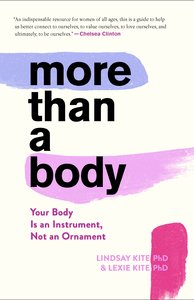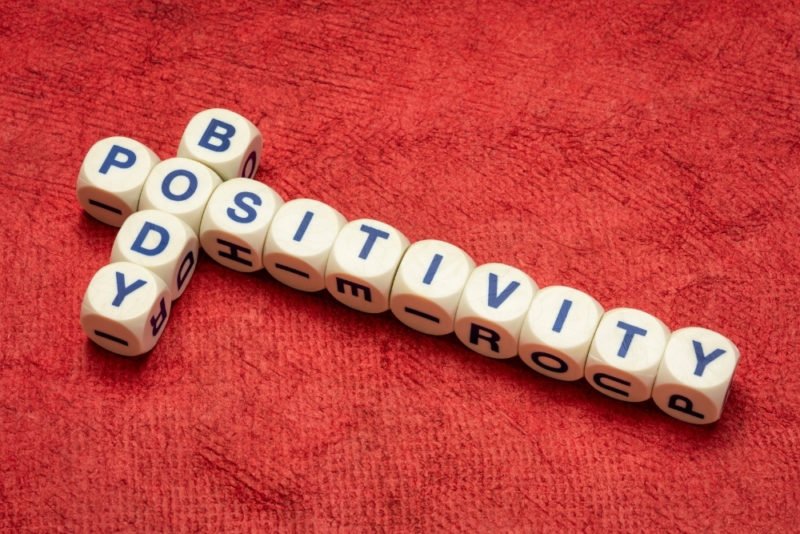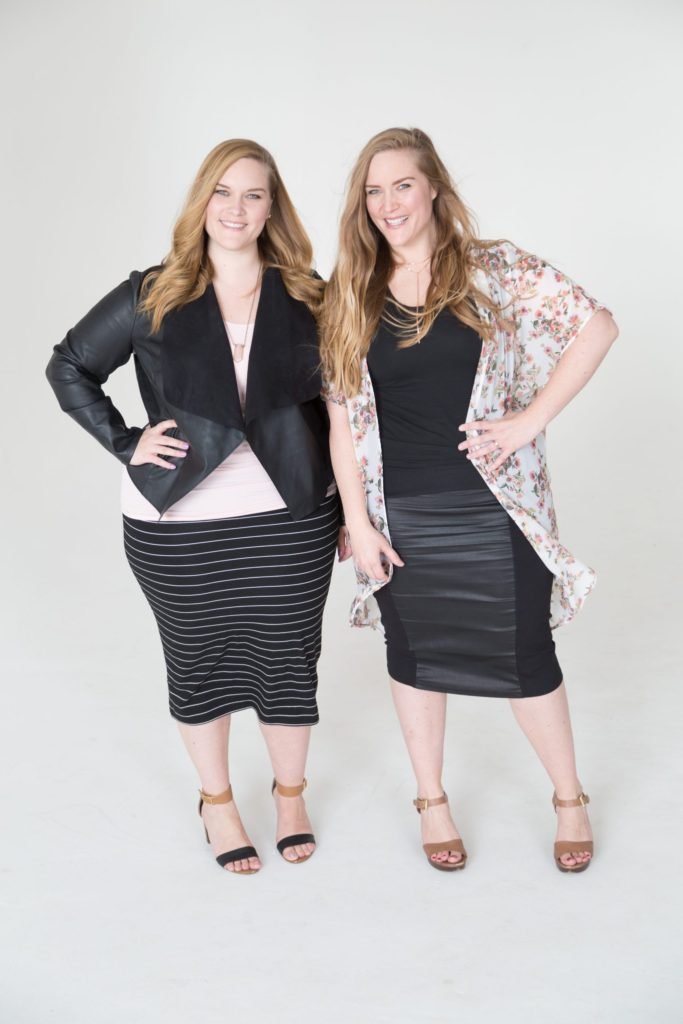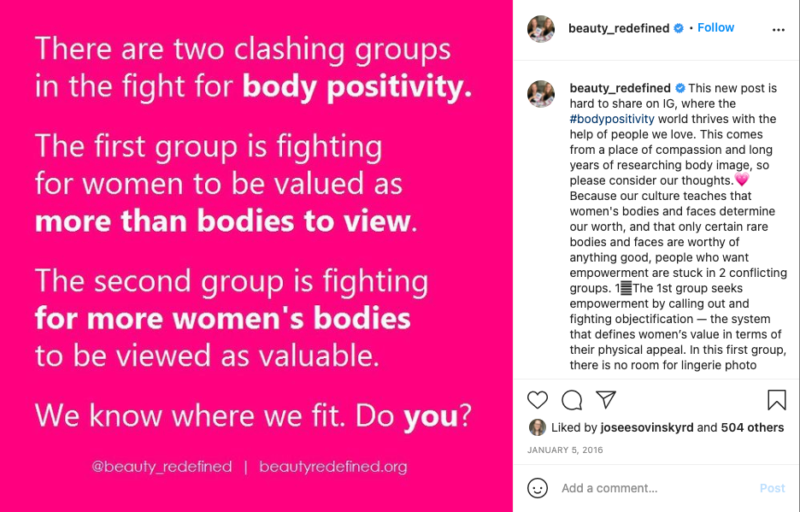
“Too many books, too little time” has been my mantra for decades. If I could create more hours in the day, it would be to spend reading. That’s true for fiction as much as it is for books that inform or enlighten.

So when I heard that twin sisters Lindsay and Lexie Kite, both PhD, founders of Beauty Redefined, wrote their first book, “More Than A Body: Your Body Is an Instrument, Not an Ornament,” I put that on my mental “to read eventually” list.
The book might have languished on that mental list but for a comment in an email from Lindo Bacon after I reviewed their (Lindo uses they/their pronouns) latest book, “Radical Belonging: How to Survive and Thrive in an Unjust World (While Transforming It for the Better)” for The Seattle Times.)
I’ve long respected Lindo (their book “Health At Every Size” was pivotal for me when I was in grad school studying to be a dietitian, and the book they co-authored with UK dietitian Lucy Aphramor, “Body Respect,” evolved my thinking even further), so when they recommended “More Than A Body,” saying they were blown away by how good it was, I stopped what I was doing to buy a copy.
Then I read it and was blown away by how good it was. And promptly started recommending it to my clients, who also shared how blown away they were by how good it was.

Cleaning up the mess of body positivity
The body positivity movement is, frankly, a bit of a hot mess. Originally born out of the fat acceptance movement, what began with the noble intentions of promoting radical self-love regardless of body size now unfortunately has been co-opted by advertisers. The top #bodypositivity and #bodypositive Instagram posts feature young, thin white women. It’s also become about feeling positive about how you look.

As the Kite sisters point out on the back cover of their book, “Positive body image isn’t believing your body looks good; it is knowing your body is good, regardless of how it looks.”
They start out with personal stories of self-objectification: their competitive diets in middle school, their dropping out of swim team (even though they loved swimming) because they didn’t want to be seen in bathing suits. Then they go deep into the waters of objectification we swim in (a metaphor they use to great effect), exploring the ways that life experiences can cause small shifts or even major disruptions in how we feel about our bodies. (In this, they draw on their own body image research.)
Often, they write, we “cope” with these disruptions by sinking into shame or by trying to “fix” our bodies through diet, exercise, plastic surgery – an outside solution for an internal problem. Then they offer a better path: resilience.

Building body image resilience
As Lindo Bacon says in her back-cover testimonial for the book, “The Kite sisters’ work is not trite self-help or body positivity clichés.” Totally. While the book is quite engaging, it’s meaty. To use their water metaphor again, they dive deep into what we can do if we want to truly make peace with our bodies and recognize our true value as humans. This includes learning how to
- Critique the media environment (and create/curate a personalized media environment that supports us rather than tears us down)
- Let go of self-comparison in favor of self-reflection (with a dose of self-compassion) so we can stop objectifying ourselves.
- Unite ourselves with other women rather than pitting ourselves against them in some sort of appearance competition (this also involves letting go of making body compliments).
- Reclaim what health and fitness means to you, and learning to not equate those things with how you look.
- Move beyond beauty when considering body image and body positivity.
This last point is a key one. In the book, the sisters refer to a 2016 Instagram post they wrote:

Who is this book for?
This book is for you if you:
- Find yourself caught on the hamster wheel of physical “self-improvement.”
- Suspect that your “self-care” practices are only feeding your self-objectification.
- Feel that you are less-than-worthy because your body is “too big,” “too old,” or doesn’t measure up to current beauty ideals in other ways.
- Hold yourself back from things you want to do because you aren’t happy with your body.
- Believe that health and fitness (yours and others) can be measured by looking at someone’s body.
- Don’t feel good about how judgmental you are about your body, and other people’s bodies.
- Are sick and tired of being at war with your body.
Almost everyone – especially women – has experienced body image disruptions, big or small. “More Than A Body” shows you how you can use those experiences to heal your relationship with your body, rather than staying stuck in a shame spiral or continuing to hope that if your outsides look “OK,” that your mental and emotional health will be “OK,” too. I highly, highly recommend this book.
You can learn a bit more about the Kite sisters’s approach to body resilience in this 2017 TEDx talk:
This post contains Amazon Affiliate links. As an Amazon Associate I earn from qualifying purchases.
Disclaimer: All information provided here is of a general nature and is furnished only for educational purposes. This information is not to be taken as medical or other health advice pertaining to an individual’s specific health or medical condition. You agree that the use of this information is at your own risk.
Hi, I’m Carrie Dennett, MPH, RDN, a weight-inclusive registered dietitian, nutrition therapist and body image counselor. I offer compassionate, individualized care for adults of all ages, shapes, sizes and genders who want to break free from eating disorders, disordered eating or chronic dieting. If you need to learn how to manage IBS symptoms with food, or improve your nutrition and lifestyle habits to help manage a current health concern or simply support your overall health and well-being, I help people with that, too.
Need 1-on-1 help for your nutrition, eating, or body image concerns? Schedule a free 20-minute Discovery Call to talk about how I can help you and explore if we’re a good fit! I’m in-network with Regence BCBS, FirstChoice Health and Providence Health Plan, and can bill Blue Cross and/or Blue Shield insurances in many states. If I don’t take your insurance, I can help you seek reimbursement on your own. To learn more, explore my insurance and services areas page.
 Print This Post
Print This Post






